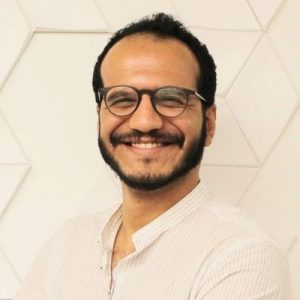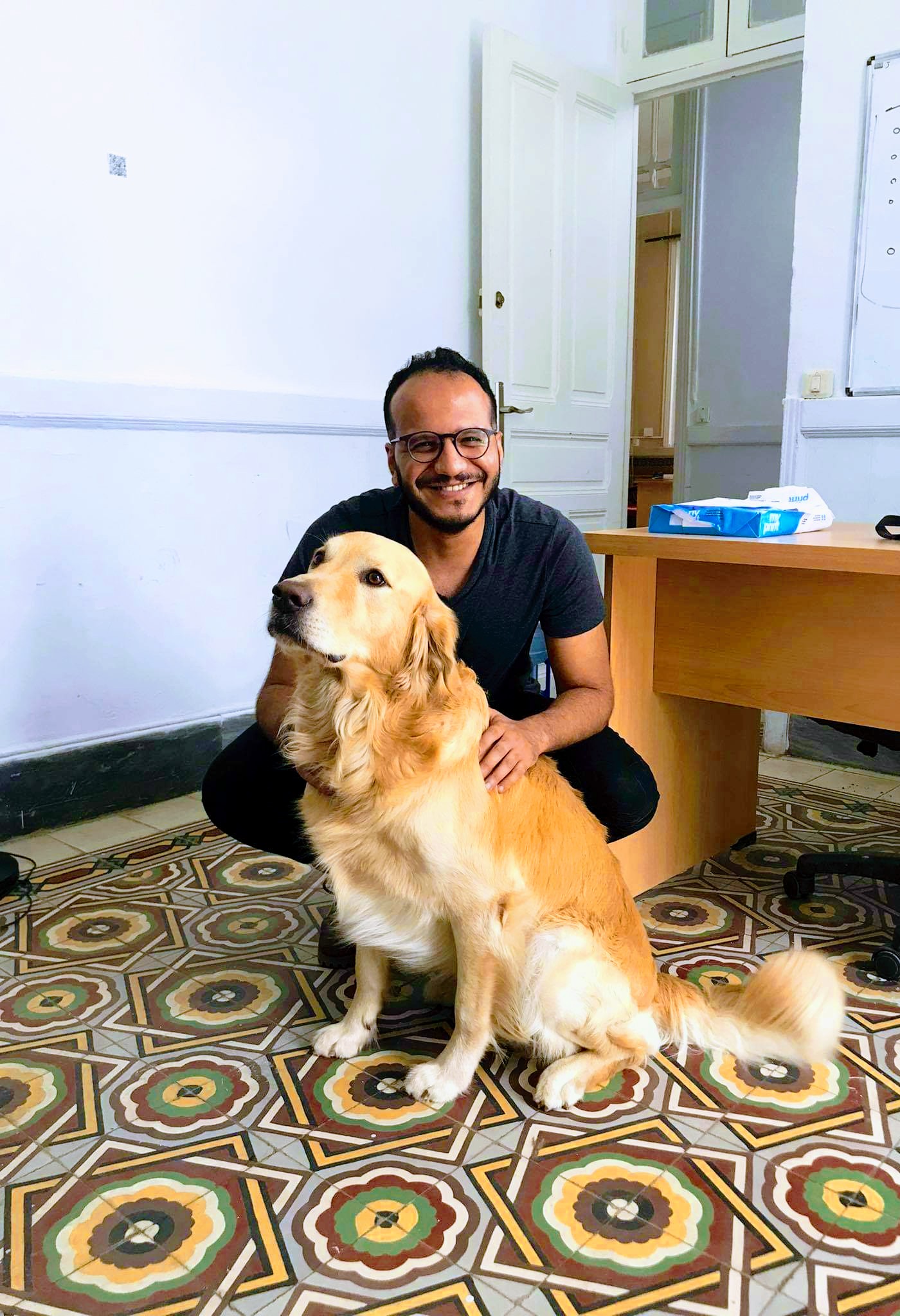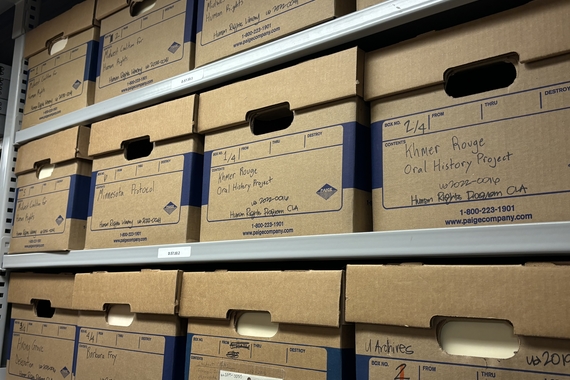“I owe the MHR program a lot”
Master of Human Rights student Mohamed Mandour (‘23) is a scholar and Egyptian human rights defender who has researched and written in the human rights field since 2014. As a research and policy fellow for human rights organizations in the U.S. and Egypt, he has addressed repression and activism in Egypt’s civil society, issues in the U.S.-Egypt relationship, and the state of organizing by members of the Egyptian diaspora. In 2019, he was forced to flee Egypt following a crackdown on the Adalah Center for Rights and Freedoms, a human rights organization where he worked on issues related to the rights of Egypt’s indigenous peoples. He has since conducted research and advocacy on Egyptian human rights issues from exile in the U.S. and Tunisia.

An engineer by trade, Mandour entered politics during Egypt’s Tahrir Square uprising in January 2011, an act of mass civil disobedience that brought an end to the three-decade rule of dictator Hosni Mubarak. Following the revolution, he joined Egypt's increasingly active civil society until a military junta under General Abdel Fattah El-Sisi ushered in what some experts have called a regime even more extreme than Mubarak’s.
After leaving Egypt, Mandour enrolled in the MHR degree program in Fall 2021 to supplement his practical experience in human rights. Since coming to Minnesota, he has worked for the Human Rights Program as a graduate research assistant and spearheaded a project addressing the ways authoritarian governments exploit an increasingly globalized system of higher education to exercise control outside their borders. In an article for the Human Rights Program, he identifies the tools governments use to censor scholarship abroad and a set of policies universities can adopt to protect the freedoms of their students and faculty. An April webinar he organized to shed light on issues of academic freedom can be found on the Human Rights Program’s YouTube channel.

Mandour currently serves as the Bassem Sabry Democracy Fellow at the Tahrir Institute for Middle East Policy, a Washington, D.C.-based non-profit where he researches repression and activism in the Egyptian diaspora. In March, he published an in-depth analysis of the ways Egyptians abroad have organized for democracy since 2013. He also recently completed his MHR internship with the Human Rights Foundation.
Mandour spoke to the Human Rights Program to discuss his scholarly work, his background as a human rights defender, and his experience in the MHR program. His responses have been edited for clarity and length.
Human Rights Program (HRP): Can you tell us about how you first became involved in human rights?
Mohamed Mandour (MM): The main turning point in my life was the Egyptian revolution in 2011, of which I am honored to have been a part. It was a magical moment that not only dramatically changed Egypt, but also endowed me with a completely new view of the world, Egypt, and myself. Although I was studying engineering at the time, I decided that I wanted to support the democratic transition in Egypt by being involved in one of the democratic presidential campaigns. Later, I joined a political party and became a member of its political bureau. After the 2013 military coup in Egypt, there was a brutal crackdown on political parties and their members, as well as civil society organizations and activists. This prompted me to think that the role I should play, given this context, was defending human rights in Egypt and standing against the regime's repression. I was lucky enough to join the Egyptian Initiative for Personal Rights, one of the most prominent human rights organizations in the Middle East, where I focused on civil liberties in Egypt.
HRP: How has your MHR program impacted your career as a scholar and human rights defender?
MM: I owe the Master of Human Rights program a lot. My background is in engineering, so it was my first time to see education related to human rights. I practiced human rights as a human rights defender, and I did a lot of research, but I didn’t have the needed academic background. Now, I feel like I have the needed academic background to do research more professionally. The program has also opened room for me to apply for internships in the U.S., enhanced my academic writing, and opened opportunities for me in the future to apply for a Ph.D.
HRP: You’ve done a lot of work with the Human Rights Program on a project related to transnational repression. What comes next in that project?
MM: On the research track, we are working on raising awareness. That’s what we did through the webinar, by inviting experts and scholars to talk about this issue. We’re also working on internal advocacy within the Humphrey School and the University of Minnesota to provide the needed support to scholars and students who might be subjected to risk. For example, we’re working closely with international students who are subjected to risks and asking them what they need from University administration. We’re starting to provide mental health support to students who are subjected to intimidation, talking with International Student and Scholar Services about introducing a part of their orientation for international students about the risks they might be subjected to if they speak their minds, and we’re working to provide students with opportunities to stay in the U.S. after they graduate. What we’re trying to do is make the University of Minnesota a prototype for the kinds of policies that can promote academic freedom in universities all over the world.
HRP: What advice do you have for current and future MHR students, and especially international students?
MM: I would say, make an effort in choosing your classes, because one class literally can change your perspective about what you want to do in the future. Spend time choosing the classes that you think will be beneficial to you professionally and academically, and think about your professors as part of your network. For example, if you’re interested in working with the United Nations, go to classes with Professor Fionnuala Ní Aoláin, because she is a special rapporteur right now. Your professors can be valuable resources, but you have to form a relationship with them.
For international students, I will say it’s important that you are bringing a different perspective to your classes, but it’s also important for you to hear from your peers about the situation in the U.S. It's not only because you are living here and you might want to pursue your career here, but also think about the role of the U.S. around the globe as a superpower that can redefine human rights conditions. For one, try to intern with a U.S. human rights organization or think tank. It will add a lot to your experience to be in a different atmosphere.
HRP: What are your professional and academic plans after you receive your MHR degree?
MM: My professional plan after the MHR program is to focus on securing a job with one of the prominent human rights organizations in the U.S. that focuses on the Middle East and North Africa region. This is a strategic choice, because the U.S. has significant leverage over those countries and plays a role in advancing human rights conditions there. I served as the legal and policy intern at the Human Rights Foundation, focusing on human rights conditions in the region, especially Egypt and the Gulf countries. I also plan to pursue a Ph.D. in the U.S., where I intend to focus on exile activism practiced by Middle East and North African activists and how authoritarian regimes use a wide array of policies to respond to this activism.


